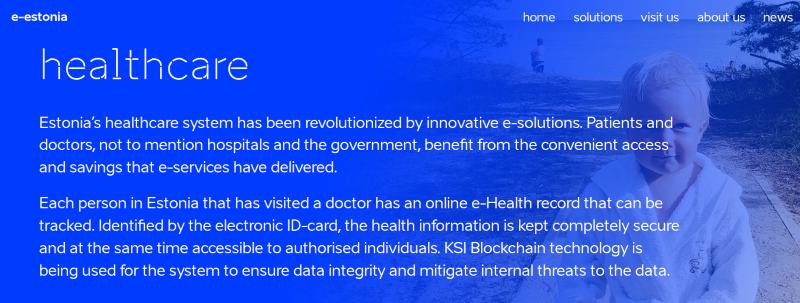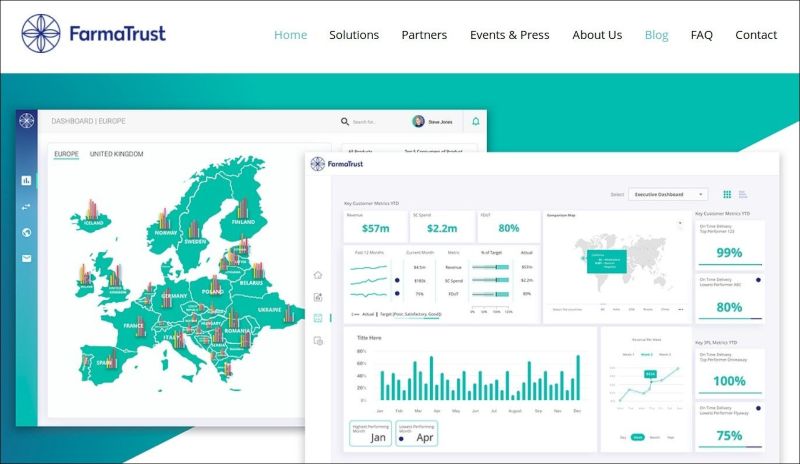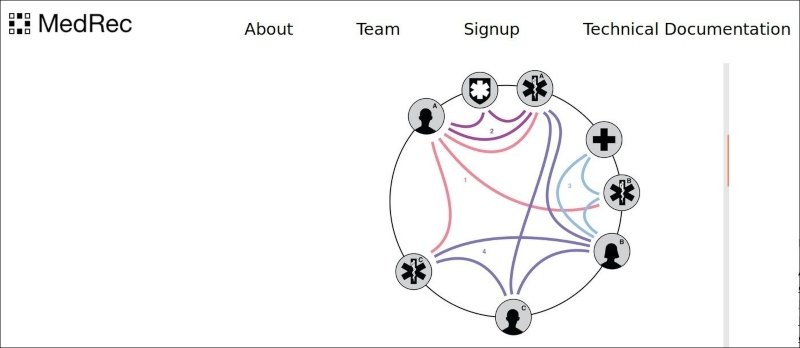Blockchain For Health: Reviewing Blockchain Use Cases in Healthcare

As the current pandemic reveals, hospitals are not prepared properly for emergencies. It seems that the national healthcare systems are not prepared for any extraordinary situations. Wall Street Journal has pointed at the way blockchain platforms could improve the situation so the hospitals would receive artificial lung ventilation devices, test kits, and masks on time. In the article, WSJ tells about IBM's Rapid Supplier Connect — a blockchain-based platform providing supply to hospitals. We should say that long before the coronavirus pandemic it was understood that blockchain is a forward-looking direction in the healthcare industry evolution.
The global healthcare industry needs serious improvements. In many countries, this sphere of life is so complicated that at times people prefer to heal themselves without professional assistance. Needless to say that the results of such treatment are not always positive or useful. Healthcare professionals also wish for better. Quality treatment requires access to as much health data as needed — from the patient's past medical history to the latest research in the medical sphere.
Blockchain Potential in the Healthcare Industry
By some accounts, alongside supply chains and donations/charity, healthcare is going to benefit from blockchain the most. As blockchain provides great opportunities for storage, protection, and permitted global access to sensitive data, we cannot overestimate its potential for the healthcare industry. Blockchain implementation is one of the popular directions for the further development of the healthcare system.
Dozens of companies have already started using DLT technologies in order to enhance their services and make healthcare more convenient both for patients and physicians.
Thanks to blockchain, medical records can be available all in one place as opposed to a current "modern" situation when the information is split among separate organizations. If the patient forgets to inform a doctor of some facts critical for the treatment, the doctor won't be able to get these facts on time from anywhere else. Moreover, in some countries where the health records are stored on paper, these documents can be accidentally lost. Blockchain provides an opportunity to get access to the important info and keep the data safe and sound. Additionally, we all know the burdens of bureaucracy. It's understood that replacing a human with an automated archive worker that is fully operable 24/7 is a good move that will save time and will help to avoid human errors. Transition to blockchain makes the medical service cheaper, as well. Moreover, medical records put on the blockchain can be reviewed by the patients, too.
We have already mentioned such industries as supply chains and charity as ones that will benefit from blockchain technology. We should add that healthcare depends on both of them to some extent. Hospitals should be supplied with pharmaceuticals properly and blockchain platforms are working right now to make this task easier. The healthcare institutions supply gets cheaper, more accurate, and faster with the involvement of supply chain platforms powered with DLT. The reason is clear — the info on decentralized ledgers is immutable and easily accessed. These platforms let one track the items from the factory (or even from the raw matter) to the buyer. What’s important is that patients will be able to see the source of the medicines and rest assured that the production fits all standards. Charity organizations desperately need transparency as people should understand where they send money. Blockchain with its transparency and immutability serves as an excellent tool for building trustworthy charity platforms. We all know that healthcare organizations are often partly sponsored via donations. That's the reason why both supply chains and charity platforms enhanced by DLT will make the healthcare system more powerful.
Below we will take a glance at three blockchain-based healthcare platforms to learn how the sphere is developed.
eHealth Estonia
Probably if you read about blockchain innovations you are familiar with the fact that the Estonian government is one of the most blockchain-friendly states in the world. In this country, bureaucracy institutions get transferred to blockchain in order to make some social and political processes easier, safer, cheaper, and accessible online. No wonder that many companies working with blockchain-related spheres emerge in Estonia. One of these companies is eHealth Estonia.
 It's worth saying that the Estonian eHealth Foundation was launched before blockchain was invented — in 2005. Only in 2016 in association with another company, Guardtime, eHealth Estonia started to actively use blockchain. Guardtime provided a blockchain-based Keyless Signature Infrastructure (KSI) to help maintain the company data in the distributed ledger.
It's worth saying that the Estonian eHealth Foundation was launched before blockchain was invented — in 2005. Only in 2016 in association with another company, Guardtime, eHealth Estonia started to actively use blockchain. Guardtime provided a blockchain-based Keyless Signature Infrastructure (KSI) to help maintain the company data in the distributed ledger.
Currently, eHealth Estonia stores 95% of medical records on-chain. Nearly all the prescriptions are issued digitally. The platform processes over 2.3 million physicians' requests monthly. It is more than 50 requests per minute. Today, there are over a million medical records stored by eHealth Estonia. The access is not controlled by any single entity. The records update automatically. They cannot be deleted or changed by mistake or due to malicious purposes. Overall, eHealth Estonia is a good example of a neat national healthcare online infrastructure powered with blockchain.
FarmaTrust
FarmaTrust is an English company focused on providing pharmaceuticals supply chain blockchain-based solutions. The goal of the company is to make logistics cheap and transparent. The data should be easily audited on both ends. FarmaTrust makes it nearly impossible to trade counterfeit or low-quality products with the company's clients. Besides tracking, FarmaTrust AI helps corporate clients to forecast the future need for certain drugs. The security and genuineness of data are provided by AI via smart contracts.
 The company uses a custom Zoi blockchain-based system that helps customers to reduce the tracking expenses and save time. Zoi is built on top of the Ethereum blockchain. The solution can be integrated into the customer's existing tracking system. This feature makes the use of the FarmaTrust product more convenient and user-friendly.
The company uses a custom Zoi blockchain-based system that helps customers to reduce the tracking expenses and save time. Zoi is built on top of the Ethereum blockchain. The solution can be integrated into the customer's existing tracking system. This feature makes the use of the FarmaTrust product more convenient and user-friendly.
MedRec
MedRec is developed by MIT. It provides patients with an opportunity to view and manage their medical records using an Ethereum-based blockchain platform. Doctors can access the needed data, too. The validation and access system created by MedRec is aimed at removing barriers and centralized intermediaries from healthcare.
 MedRec is focused on the comfort of patients noting that the traditional electronic health record systems are designed to be convenient for health agencies not for patients.
MedRec is focused on the comfort of patients noting that the traditional electronic health record systems are designed to be convenient for health agencies not for patients.
MedRec guarantees that the records of the platform users will be stored safely and kept tamper-proof. It's important to understand that the data is encrypted. MedRec doesn't store it in the original form. As the platform is blockchain-based it means that the data is distributed among the nodes so no single entity is capable of unauthorized interactions with it.
